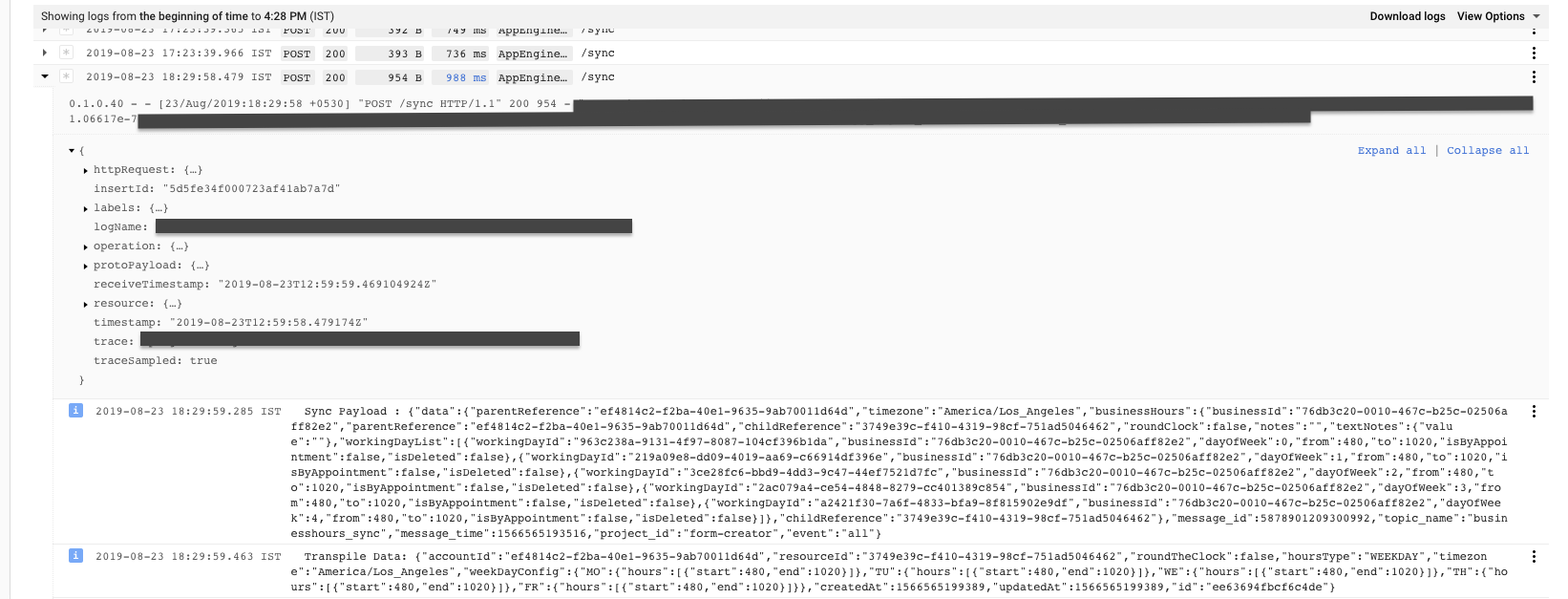1.0.0 • Published 2 years ago
gcp-nodejs-correlate-logs v1.0.0
With Google's solution has limitation which let you use only wherever you have access to the request object - https://github.com/googleapis/nodejs-logging-bunyan
But with this you can log anywhere.

Step 1:
You need to enable in GCP and use in your application -> @google-cloud/trace-agent
Step 2:
This example shown below will push logs only when it is production or staging server.
For dev also using the bunyan logger but this way it saves a cost instead pushing unnecessary local logs to cloud.
config/logger.js
import { LoggingBunyan } from '@google-cloud/logging-bunyan';
import createLogger from 'gcp-nodejs-correlate-logs';
import { getProjectId, ifDev } from './config';
// Creates a Bunyan Stackdriver Logging client
const loggingBunyan = new LoggingBunyan();
let loggerOption;
if (ifDev()) {
const bunyanDebugStream = require('bunyan-debug-stream'); // eslint-disable-line
loggerOption = {
name: 'rocket-science',
streams: [{
level: 'info',
type: 'raw',
stream: bunyanDebugStream({
forceColor: true,
}),
}],
serializers: bunyanDebugStream.serializers,
};
} else {
loggerOption = {
name: 'rocket-science',
level: 'info',
streams: [loggingBunyan.stream('info')],
};
}
const { loggerContextMiddleware, log } = createLogger(getProjectId() || 'dev', loggerOption);
export { loggerContextMiddleware, log };server.js
import express from 'express';
// Activate Google Cloud Trace before logging
if (ifLive() || ifStaging())
require('@google-cloud/trace-agent').start();
import config, { APPLICATION_MODE } from './config/config';
import { loggerContextMiddleware, log } from './config/logger';
const app = express();
app.use(loggerContextMiddleware); // Should add this middleware for correlating the logs.
app.listen(config.PORT, () => log.info(`Server listening on port ${config.PORT}... Application Mode: ${APPLICATION_MODE}`));Import the log and use it wherever you want.
api.js
import { Router } from 'express';
import { log } from './config/logger';
const route = Router();
route.use('/', ( req, res) => {
log.info('Seems working');
res.send('Hello!')
});